Leaders of the fairer sex gather in Sayala to share their experiences with others.
From dumping old, rudimentary practices to adopting new ones, from helping widows get their rights to becoming leaders, they have done it all and continue to inspire others to follow suit.
Inspirational women leaders representing nearly 40,000 groups across India were present at Sayala village in Surendranagar district for the Rural Women Leadership Convention. The two-day convention which commenced on Monday, is being organised by the Aga Khan Rural Support Programme (India) - AKRSP (I). The Mahila Shakti Sammelans formed by AKRSP (I) include women of various tribal and semi-tribal belts as key participants and catalysts for community development. Leaders representing these sammelans or manch have come down to Sayala to share their experiences.
"Today's programme is aimed towards inviting leaders from various sects, areas, villages and states to make them share their strategies, plans and operational activities while fighting for their rights. These women leaders have their own federations or manch as they call it and are here to share," CEO of AKRSP (I), Apurva Oza informed.
The convention began with women enacting their achievements in the form of a play and then went on to explain their current fights, problems faced and the possible solutions they expect from the government. Present at the convention, were RM Patel, principal secretary, panchayats and in-charge of tribal department, Government of Gujarat and DG Solanki, APO and District Rural Development Agency, Surendranagar among others.
Oza further said that while AKRSP (I) was receiving European Union funding for Madhya Pradesh and Gujarat, all other regions were being funded by private bodies or state and central governments.
Ima Vasava, Sorapada village, Sagbara Taluka
"Of the 95 villages in our district, only 52 have discarded the practice, I am still struggling for it to be discarded same from other villages," Vasava informed. Vasava is talking about the practice of a just-widowed woman to wear only a saree with no blouse. She discarded this practice, starting with her own sister-in-law.
President of Jay Jalaram Mahila Vikas Mandal, Sorapada, Vasava has formed eight savings groups under the Savshakti project and has also received a certificate from chief minister Narendra Modi for her outstanding performance in farming and leadership. Today she is respected in her village and elsewhere and men come to her to seek advice while buying land or electing their panchayat leaders.
Sumitra R Vasava, Balethi village, Mandvi taluka
"I was working with Legal Aid and Human Rights Commission office at Mandvi and received training in government schemes, rules and regulations supporting women. I received hands-on training about constitution and our rights. Owing to this, I was then able to help other women get their due rights," informed a proud Vasava. Of her biggest responsibilities, she has helped 33 women inherit or own land, of which 16 are widows. She has already helped 163 widows avail of widow pension under a government scheme, with 25 more cases in process. She charges a one time guidance fee of Rs251 for widow pension, Rs151 for senior citizen pension, Rs351 for Sankat Mochan scheme, and Rs551 for Indira Aavas Yojana.
Sharifa Bhikha Makwana, Talala, Gir
A resident of Talala, Gir, Makwana is a Siddi by origin and has received education till class II. "Despite such low education I work as a para-worker in the Siddi Adivasi Mahila Sangh and as a secretary in the Adivasi Mahila Sangh. Women in my caste or tribe were extremely addicted to gambling while the men were addicted to alcohol. But today women are saving money to provide better education to their children and men are helping women in farming, animal husbandry, growing seasonal fruits, and the like. Besides these, we also earn our livelihood from organising mehendi classes and doing embroidery work. We have also taken loans from banks to buy auto rickshaws providing employment to our men", Makwana concluded.
![submenu-img]() This film made Dharmendra star, was originally offered to Sunil Dutt, actor suffered near-death injury, movie earned...
This film made Dharmendra star, was originally offered to Sunil Dutt, actor suffered near-death injury, movie earned...![submenu-img]() Sumatra Slim Belly Tonic Scam (Tested For 90 Days) Does This Blue Tonic Supplement Work For Weight Loss?
Sumatra Slim Belly Tonic Scam (Tested For 90 Days) Does This Blue Tonic Supplement Work For Weight Loss?![submenu-img]() Sugar Defender Scam (60 Days Of Testing) What Users Are Saying About This Blood Sugar Support Formula
Sugar Defender Scam (60 Days Of Testing) What Users Are Saying About This Blood Sugar Support Formula![submenu-img]() FitSpresso Scam (I've Used It For 180 Days) Are These Weight Loss Pills Effective?
FitSpresso Scam (I've Used It For 180 Days) Are These Weight Loss Pills Effective?![submenu-img]() Understanding Legal Entity Identifiers: The Advantages and Benefits
Understanding Legal Entity Identifiers: The Advantages and Benefits![submenu-img]() Meet man who almost failed in class 12, IIT alumnus, who quit high-paying job at Infosys for UPSC exam, secured AIR...
Meet man who almost failed in class 12, IIT alumnus, who quit high-paying job at Infosys for UPSC exam, secured AIR...![submenu-img]() Meghalaya Board 10th, 12th Result 2024: MBOSE SSLC, HSSLC Arts results to be declared on this date
Meghalaya Board 10th, 12th Result 2024: MBOSE SSLC, HSSLC Arts results to be declared on this date![submenu-img]() Campus placement: Over 7700 students of IIT 2024 batch yet to get jobs, finds RTI
Campus placement: Over 7700 students of IIT 2024 batch yet to get jobs, finds RTI![submenu-img]() IIT-JEE topper joins IIT Bombay with AIR 1, skips placement drive, now working as a...
IIT-JEE topper joins IIT Bombay with AIR 1, skips placement drive, now working as a...![submenu-img]() IIT graduate builds Rs 1057990000000 company, leaves to get a job, now working as a….
IIT graduate builds Rs 1057990000000 company, leaves to get a job, now working as a….![submenu-img]() DNA Verified: Is CAA an anti-Muslim law? Centre terms news report as 'misleading'
DNA Verified: Is CAA an anti-Muslim law? Centre terms news report as 'misleading'![submenu-img]() DNA Verified: Lok Sabha Elections 2024 to be held on April 19? Know truth behind viral message
DNA Verified: Lok Sabha Elections 2024 to be held on April 19? Know truth behind viral message![submenu-img]() DNA Verified: Modi govt giving students free laptops under 'One Student One Laptop' scheme? Know truth here
DNA Verified: Modi govt giving students free laptops under 'One Student One Laptop' scheme? Know truth here![submenu-img]() DNA Verified: Shah Rukh Khan denies reports of his role in release of India's naval officers from Qatar
DNA Verified: Shah Rukh Khan denies reports of his role in release of India's naval officers from Qatar![submenu-img]() DNA Verified: Is govt providing Rs 1.6 lakh benefit to girls under PM Ladli Laxmi Yojana? Know truth
DNA Verified: Is govt providing Rs 1.6 lakh benefit to girls under PM Ladli Laxmi Yojana? Know truth![submenu-img]() AI models set goals for pool parties in sizzling bikinis this summer
AI models set goals for pool parties in sizzling bikinis this summer![submenu-img]() In pics: Aditi Rao Hydari being 'pocket full of sunshine' at Cannes in floral dress, fans call her 'born aesthetic'
In pics: Aditi Rao Hydari being 'pocket full of sunshine' at Cannes in floral dress, fans call her 'born aesthetic'![submenu-img]() Jacqueliene Fernandez is all smiles in white shimmery bodycon at Cannes 2024, fans call her 'real Barbie'
Jacqueliene Fernandez is all smiles in white shimmery bodycon at Cannes 2024, fans call her 'real Barbie'![submenu-img]() AI models show bikini style for perfect beach holiday this summer
AI models show bikini style for perfect beach holiday this summer![submenu-img]() Laapataa Ladies actress Chhaya Kadam ditches designer clothes, wears late mother's saree, nose ring on Cannes red carpet
Laapataa Ladies actress Chhaya Kadam ditches designer clothes, wears late mother's saree, nose ring on Cannes red carpet![submenu-img]() DNA Explainer: Why was Iranian president Ebrahim Raisi, killed in helicopter crash, regarded as ‘Butcher of Tehran’?
DNA Explainer: Why was Iranian president Ebrahim Raisi, killed in helicopter crash, regarded as ‘Butcher of Tehran’?![submenu-img]() DNA Explainer: Why did deceased Iranian President Ebrahim Raisi wear black turban?
DNA Explainer: Why did deceased Iranian President Ebrahim Raisi wear black turban?![submenu-img]() Iran President Ebrahim Raisi's death: Will it impact gold, oil prices and stock markets?
Iran President Ebrahim Raisi's death: Will it impact gold, oil prices and stock markets?![submenu-img]() Haryana Political Crisis: Will 3 independent MLAs support withdrawal impact the present Nayab Saini led-BJP government?
Haryana Political Crisis: Will 3 independent MLAs support withdrawal impact the present Nayab Saini led-BJP government?![submenu-img]() DNA Explainer: Why Harvey Weinstein's rape conviction was overturned, will beleaguered Hollywood mogul get out of jail?
DNA Explainer: Why Harvey Weinstein's rape conviction was overturned, will beleaguered Hollywood mogul get out of jail?![submenu-img]() This film made Dharmendra star, was originally offered to Sunil Dutt, actor suffered near-death injury, movie earned...
This film made Dharmendra star, was originally offered to Sunil Dutt, actor suffered near-death injury, movie earned...![submenu-img]() Sanjay Leela Bhansali breaks silence on Sharmin Segal's performance in Heeramandi: She kept saying, 'Mama, I will...'
Sanjay Leela Bhansali breaks silence on Sharmin Segal's performance in Heeramandi: She kept saying, 'Mama, I will...'![submenu-img]() 'To my surprise...': Neena Gupta says she is amazed as everyone from different backgrounds loves Panchayat
'To my surprise...': Neena Gupta says she is amazed as everyone from different backgrounds loves Panchayat![submenu-img]() Worst Indian film ever ended actor's career, saw court cases; it's not Jaani Dushman, Adipurush, RGV Ki Aag, Himmatwala
Worst Indian film ever ended actor's career, saw court cases; it's not Jaani Dushman, Adipurush, RGV Ki Aag, Himmatwala![submenu-img]() Meet director, was thrown out of film for advising Salman Khan, gave flops; later made 6 actors stars with just one film
Meet director, was thrown out of film for advising Salman Khan, gave flops; later made 6 actors stars with just one film![submenu-img]() Old video resurfaces: Hippo attempts zoo breakout, gets slapped by security guard
Old video resurfaces: Hippo attempts zoo breakout, gets slapped by security guard![submenu-img]() Mysterious pillars of light in sky spark alien speculation, know what they are
Mysterious pillars of light in sky spark alien speculation, know what they are![submenu-img]() Shaadi.com's innovative dowry calculator garners social media praise, here's why
Shaadi.com's innovative dowry calculator garners social media praise, here's why![submenu-img]() Viral video: Woman gracefully grooves to Aditi Rao Hydari’s Saiyaan Hatto Jaao from Heeramandi, watch
Viral video: Woman gracefully grooves to Aditi Rao Hydari’s Saiyaan Hatto Jaao from Heeramandi, watch![submenu-img]() Know about Travancore royal family that controls treasure of the wealthiest temple on Earth
Know about Travancore royal family that controls treasure of the wealthiest temple on Earth
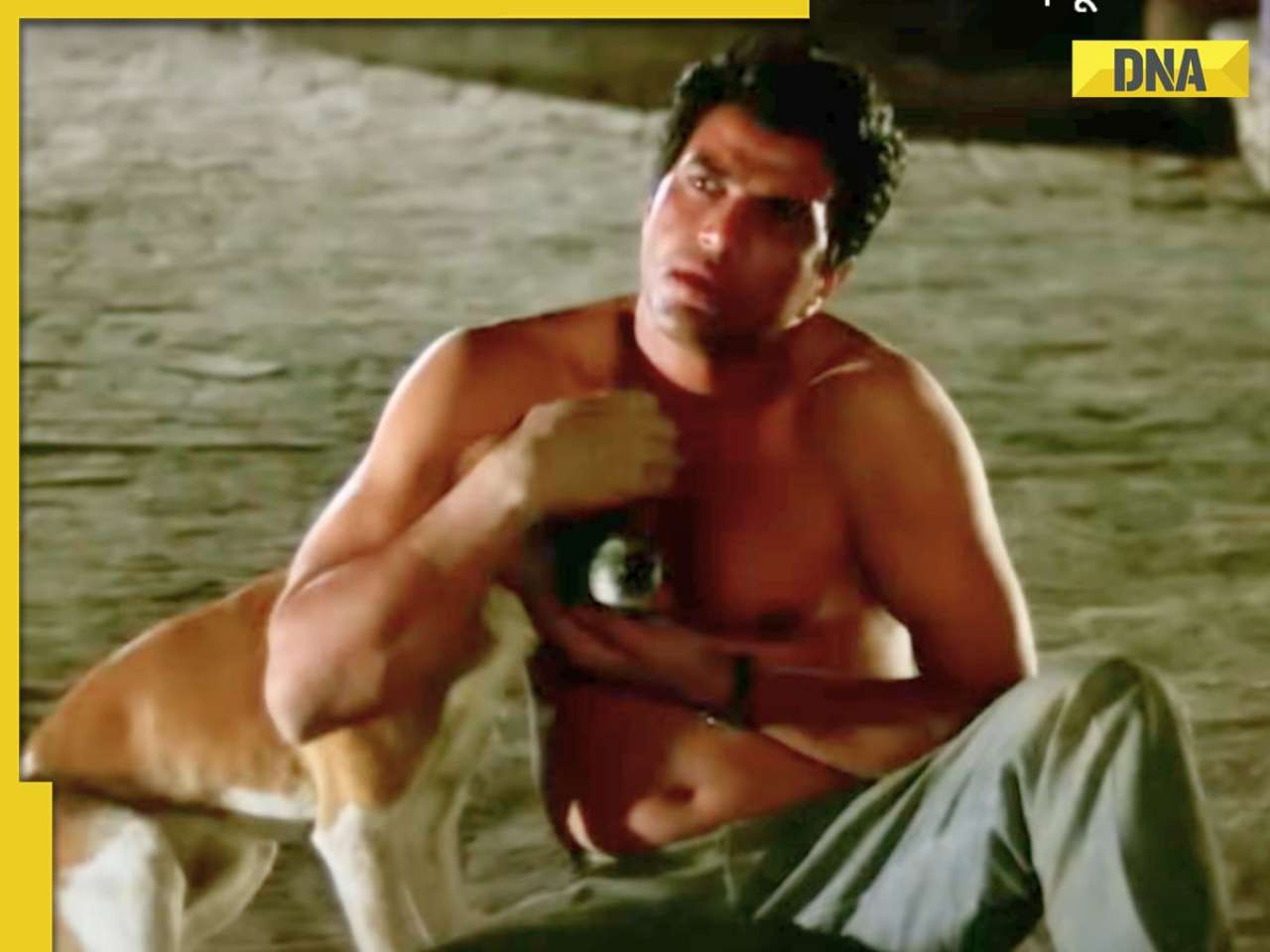









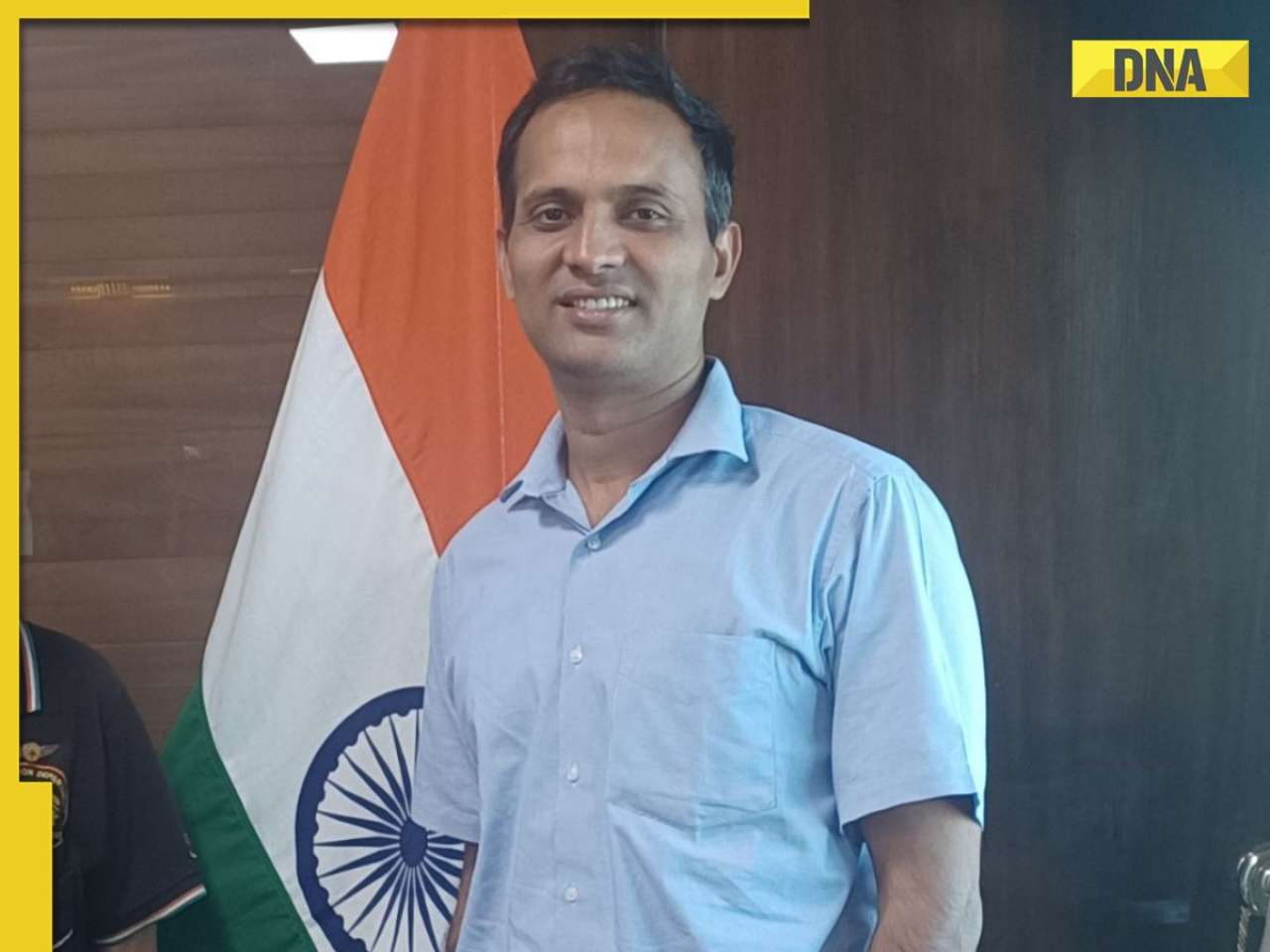
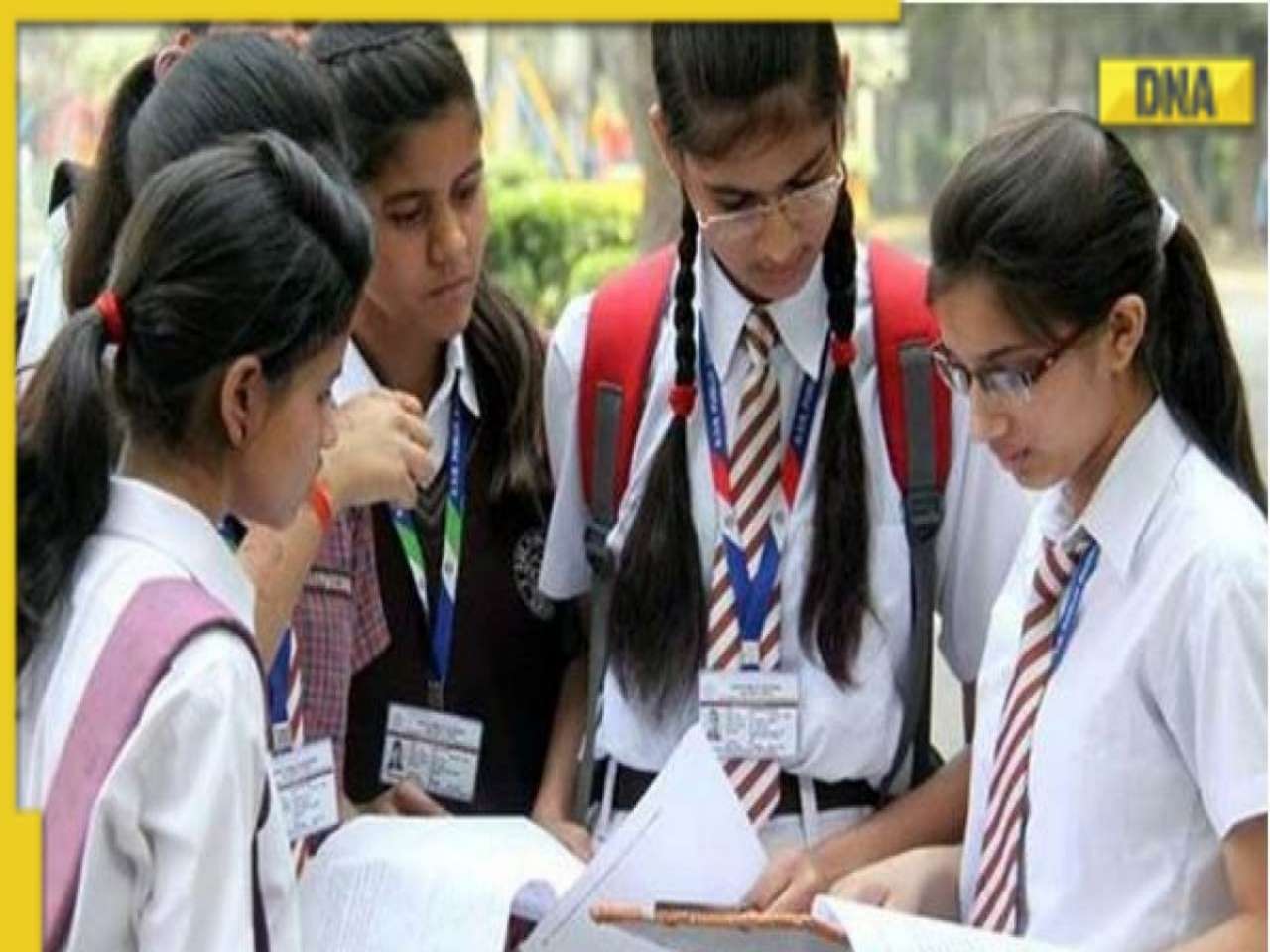

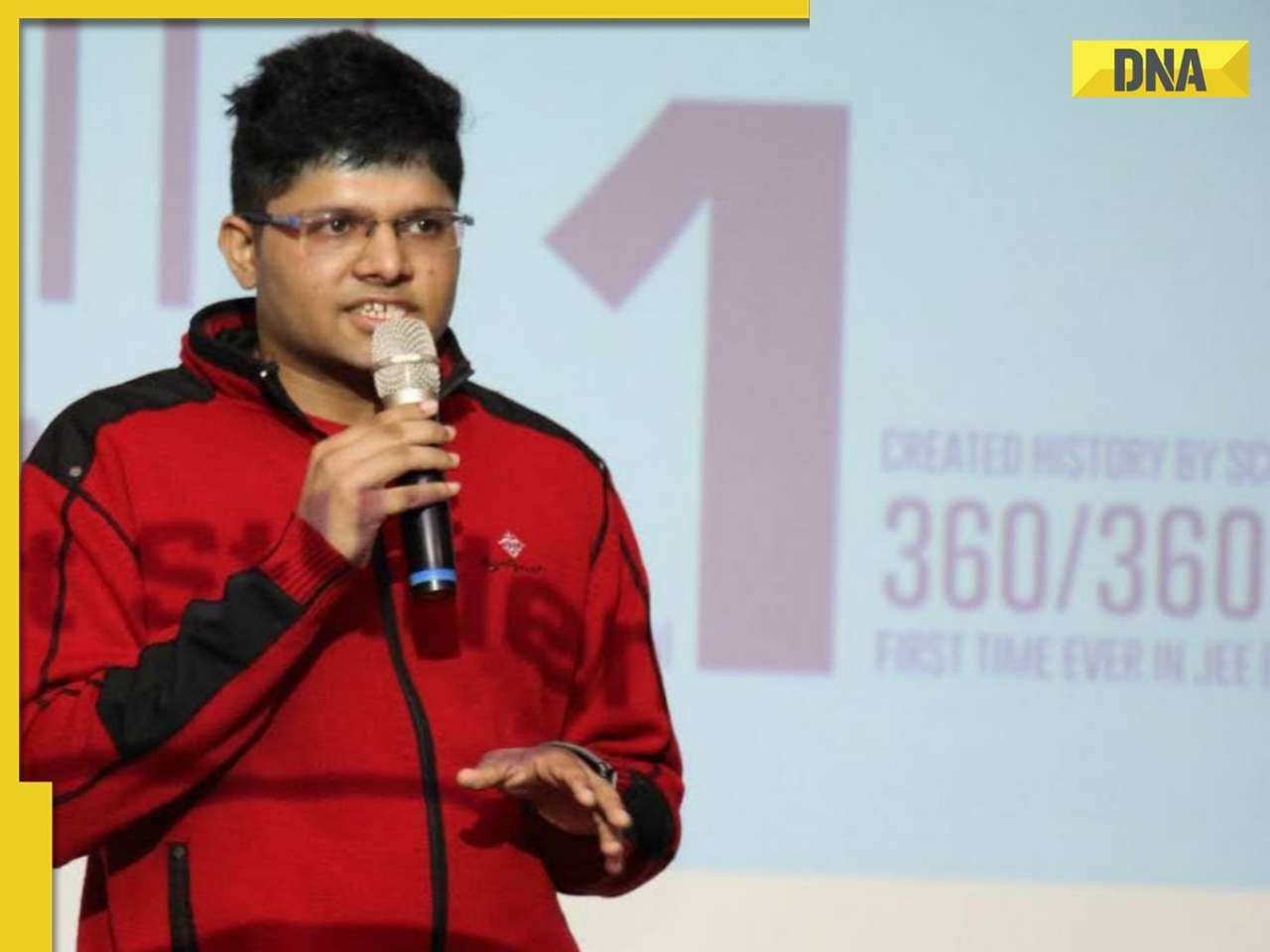
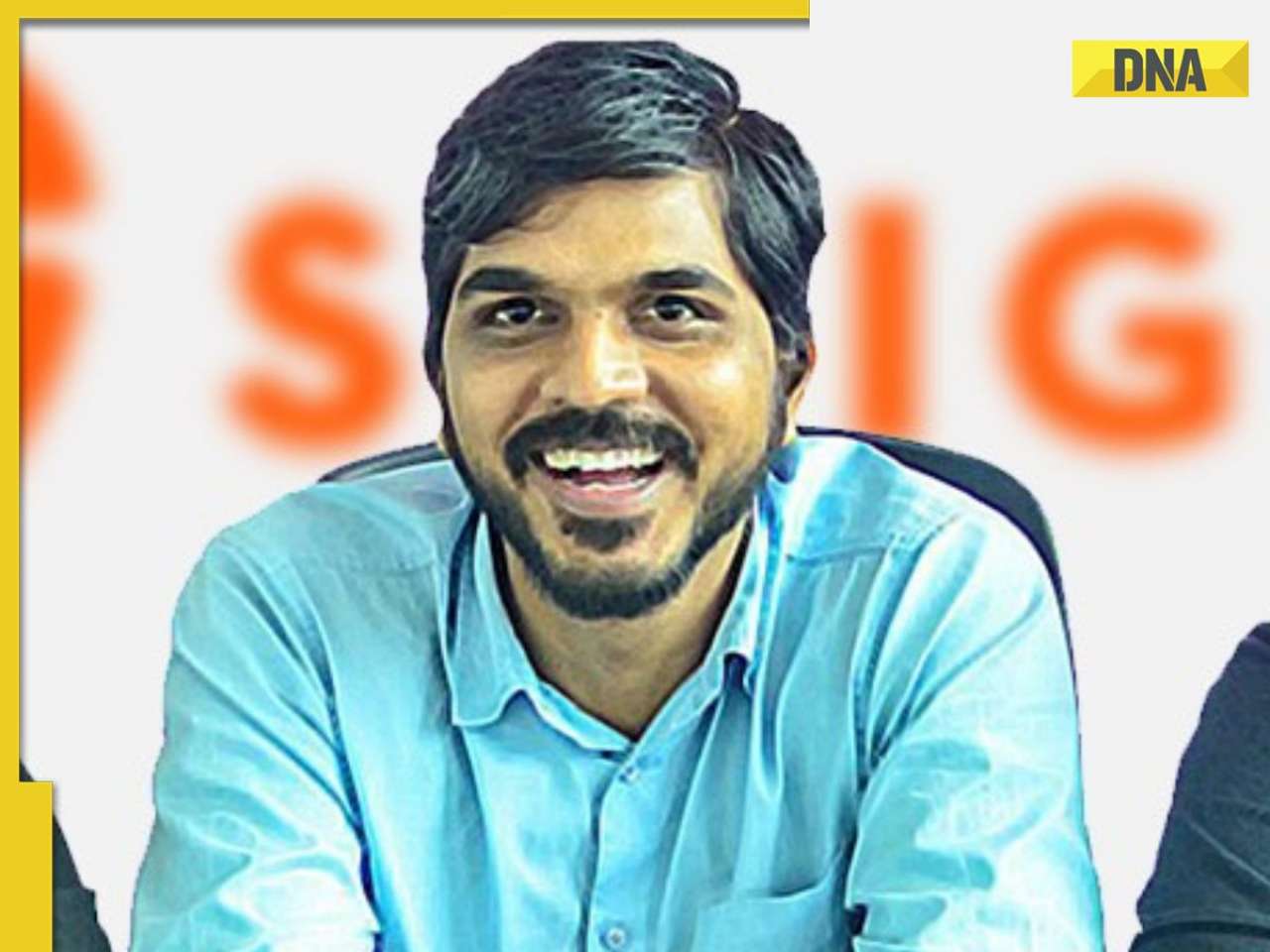









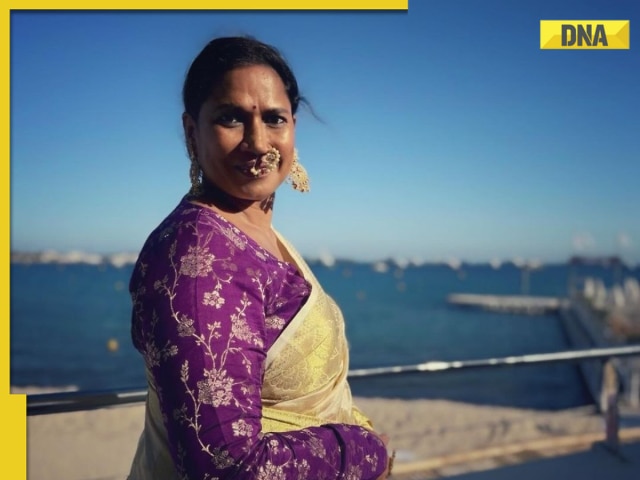






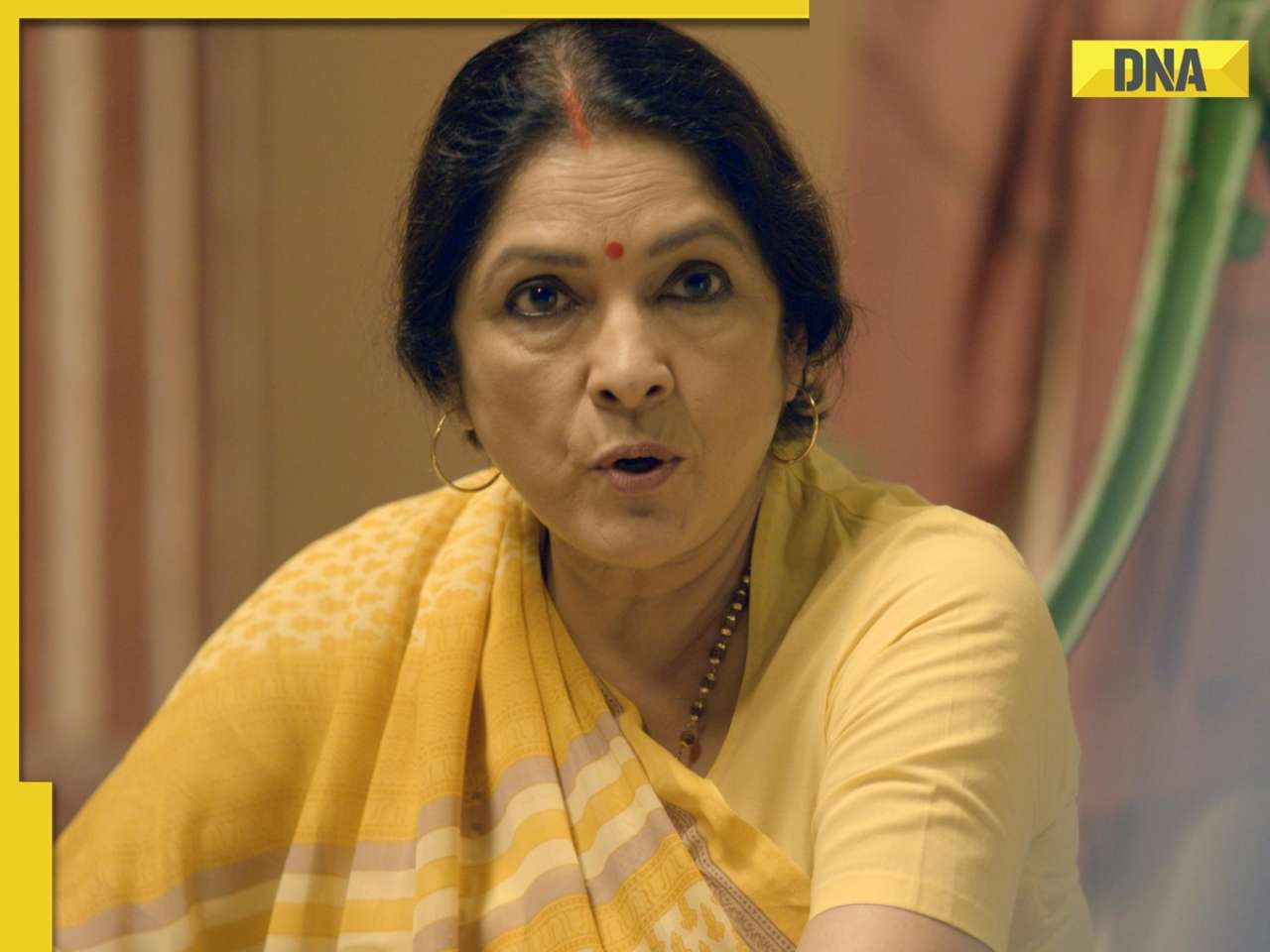
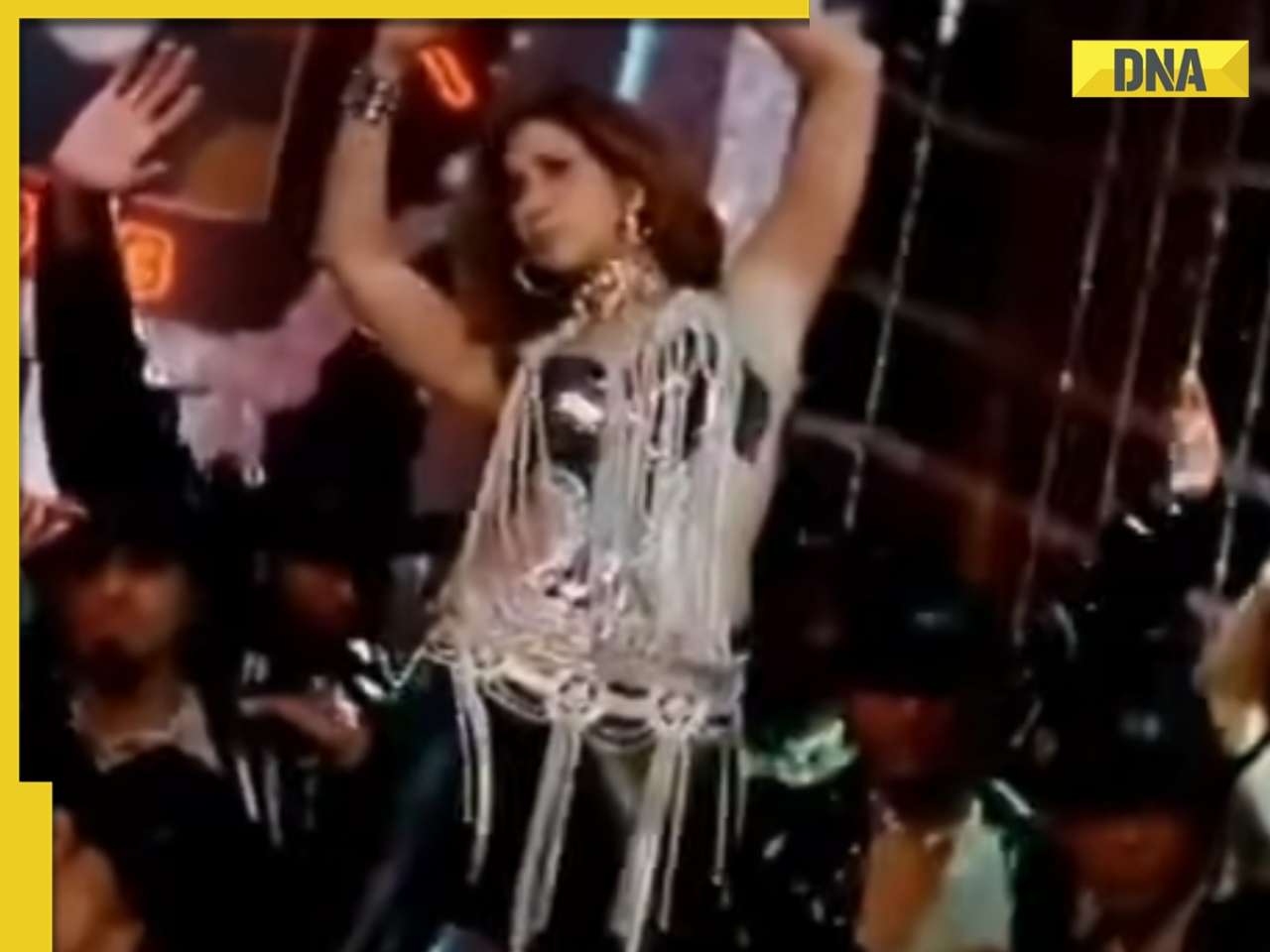

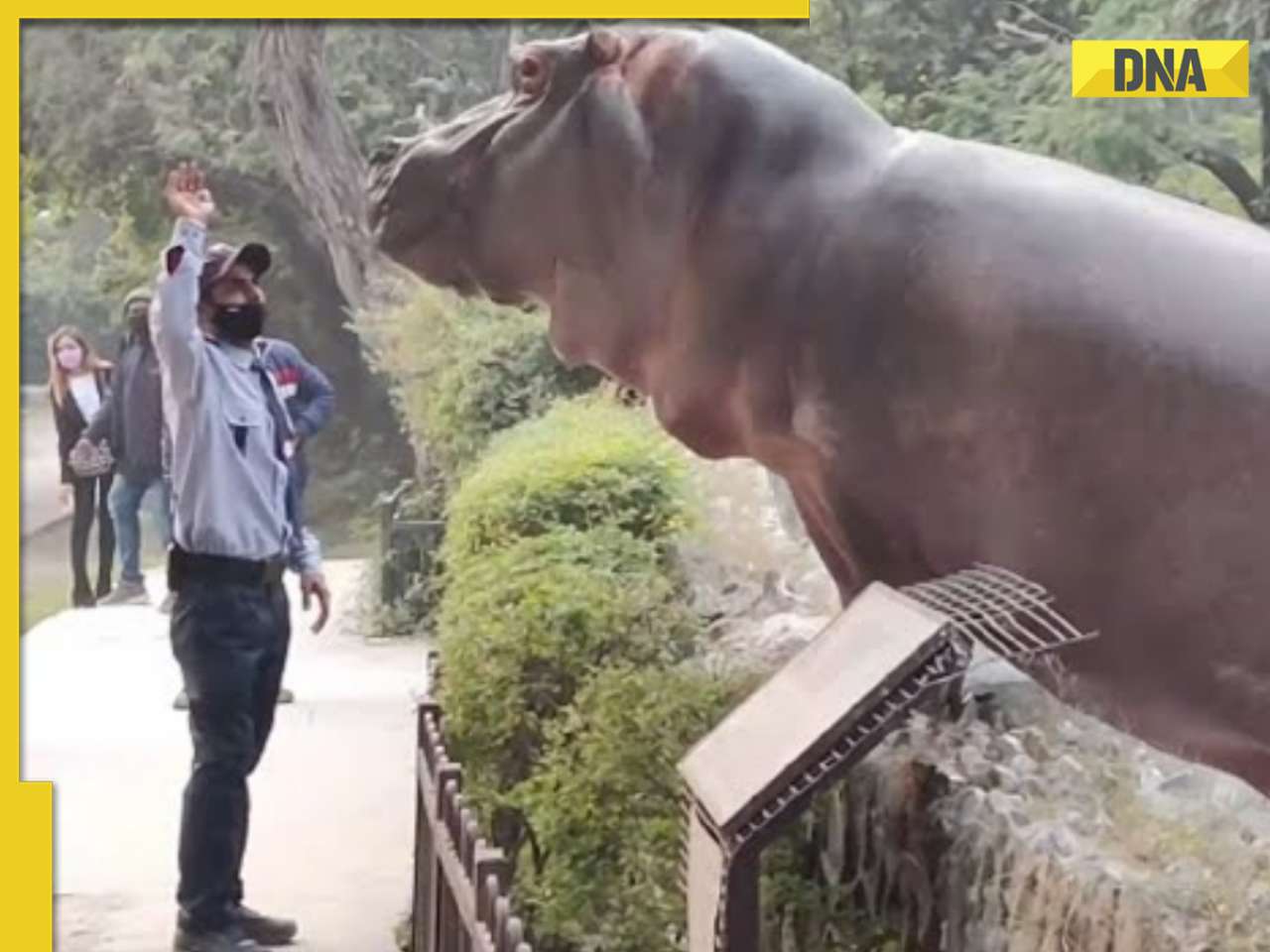

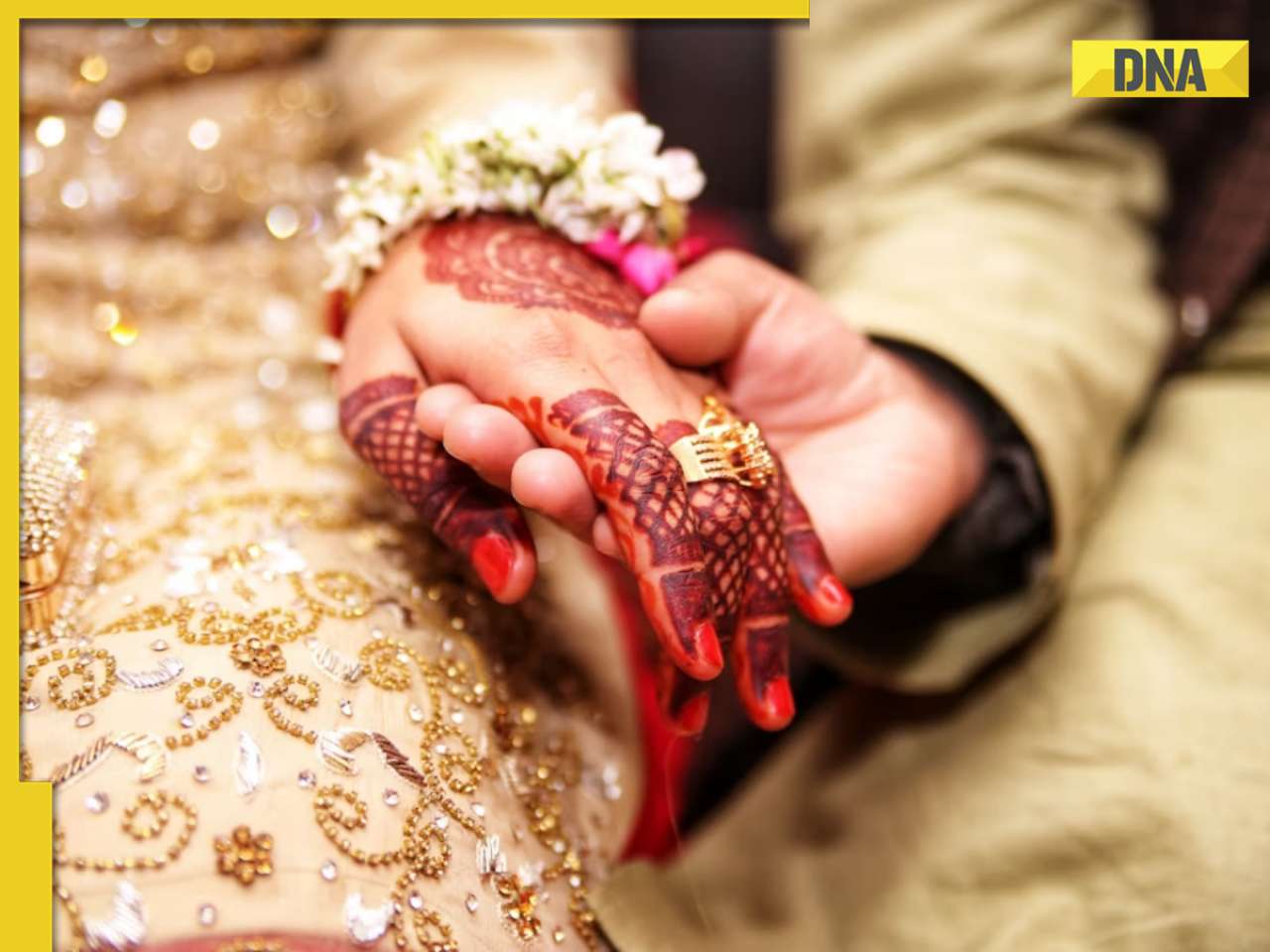
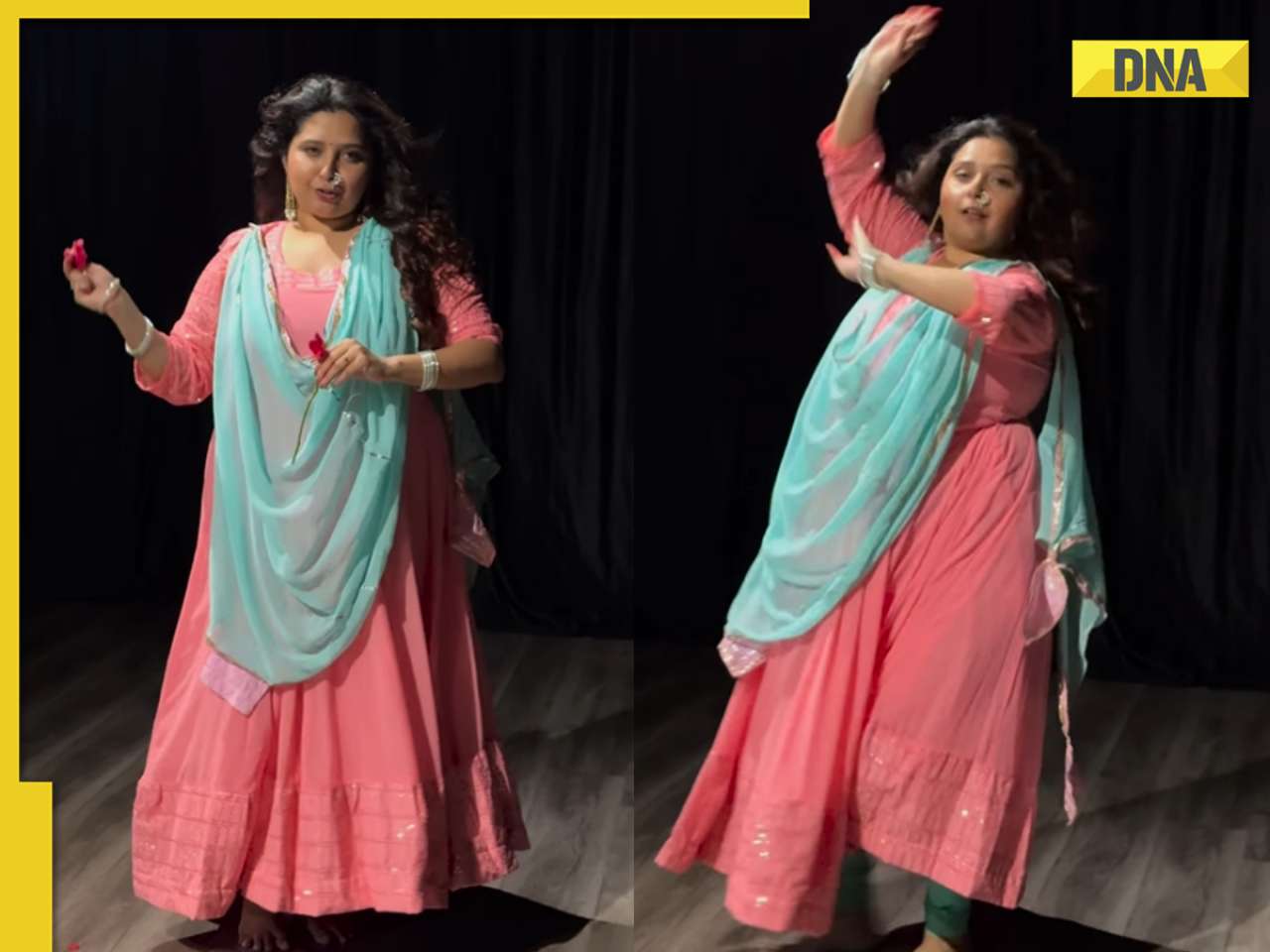
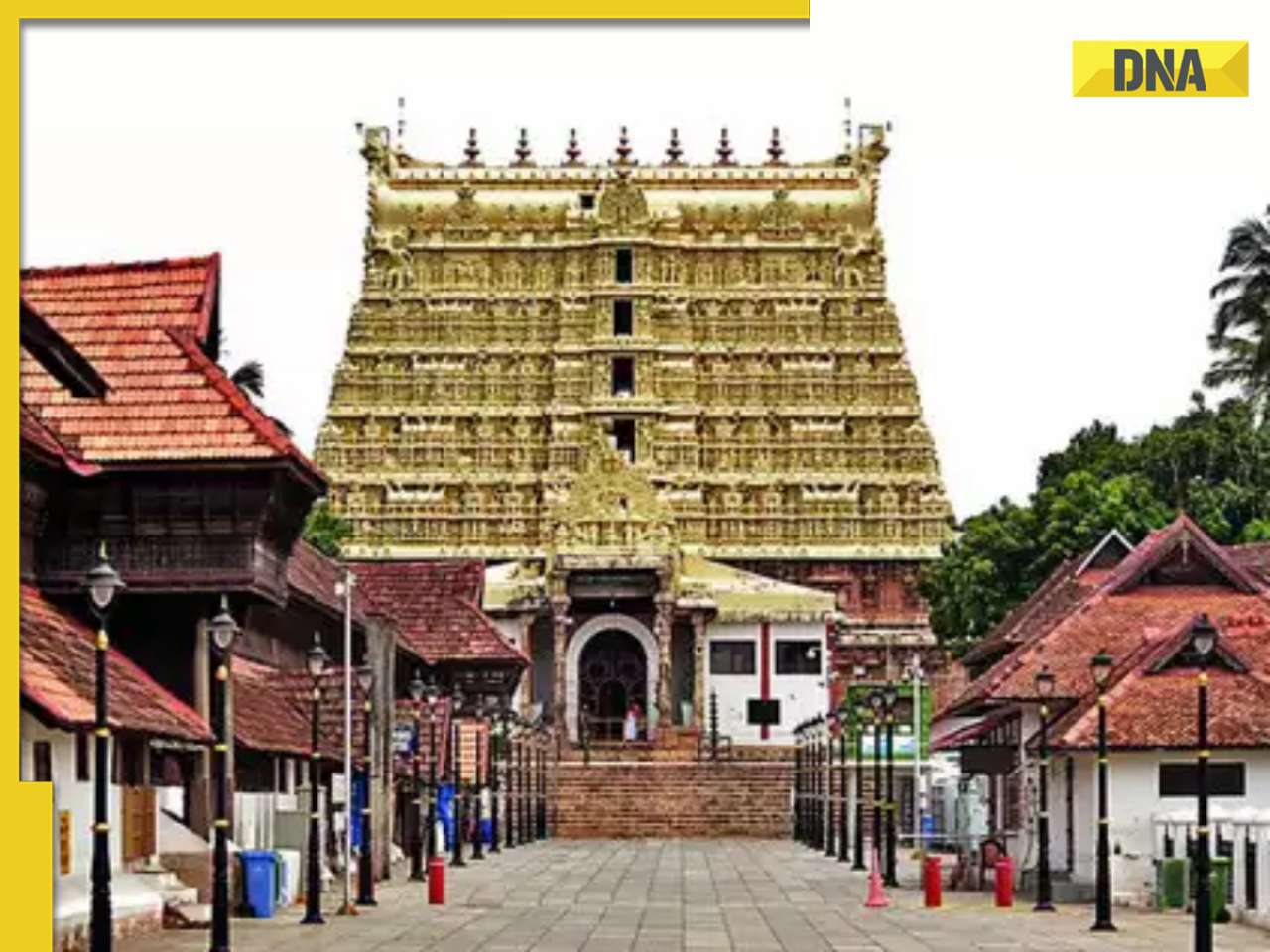


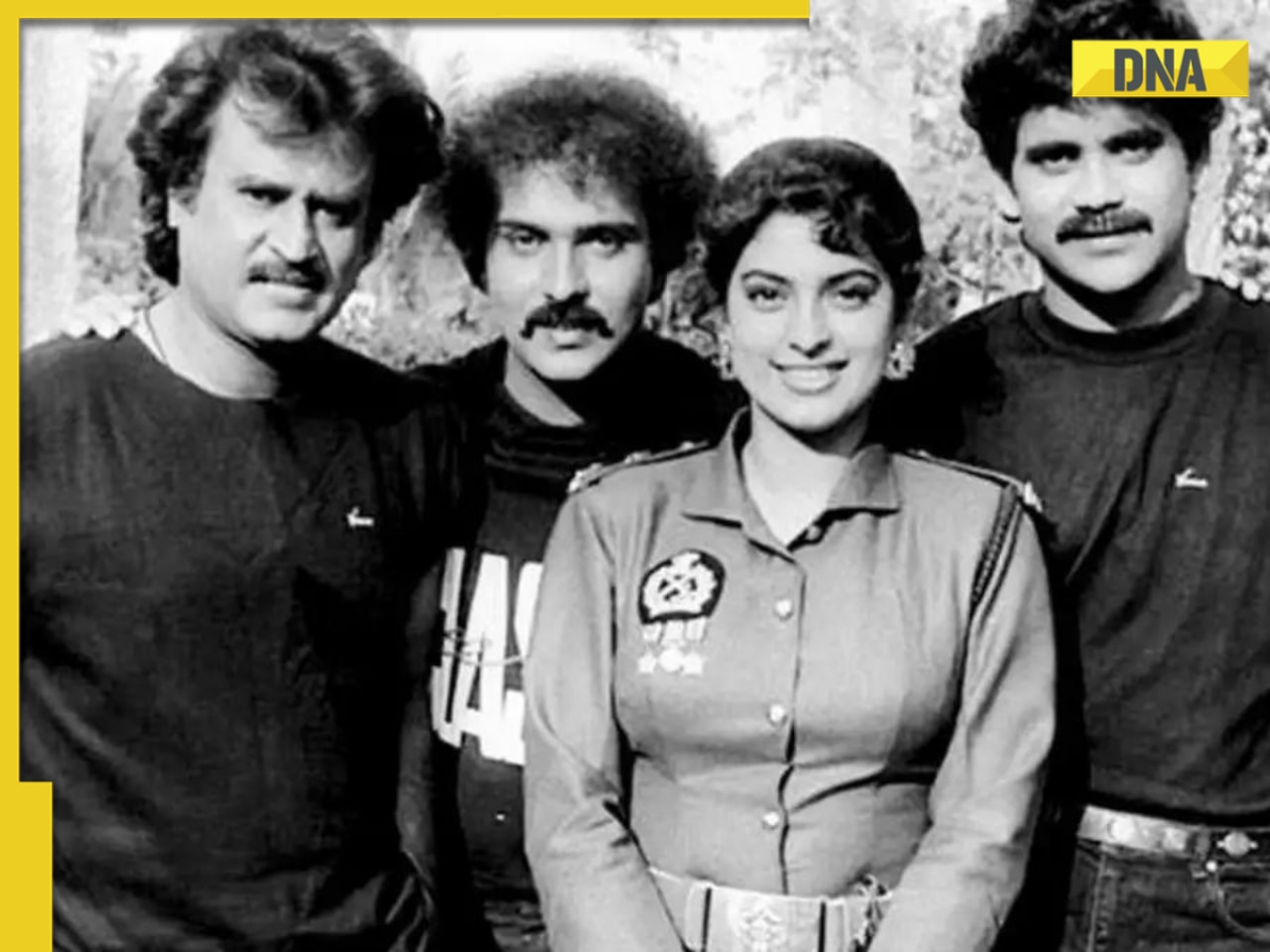
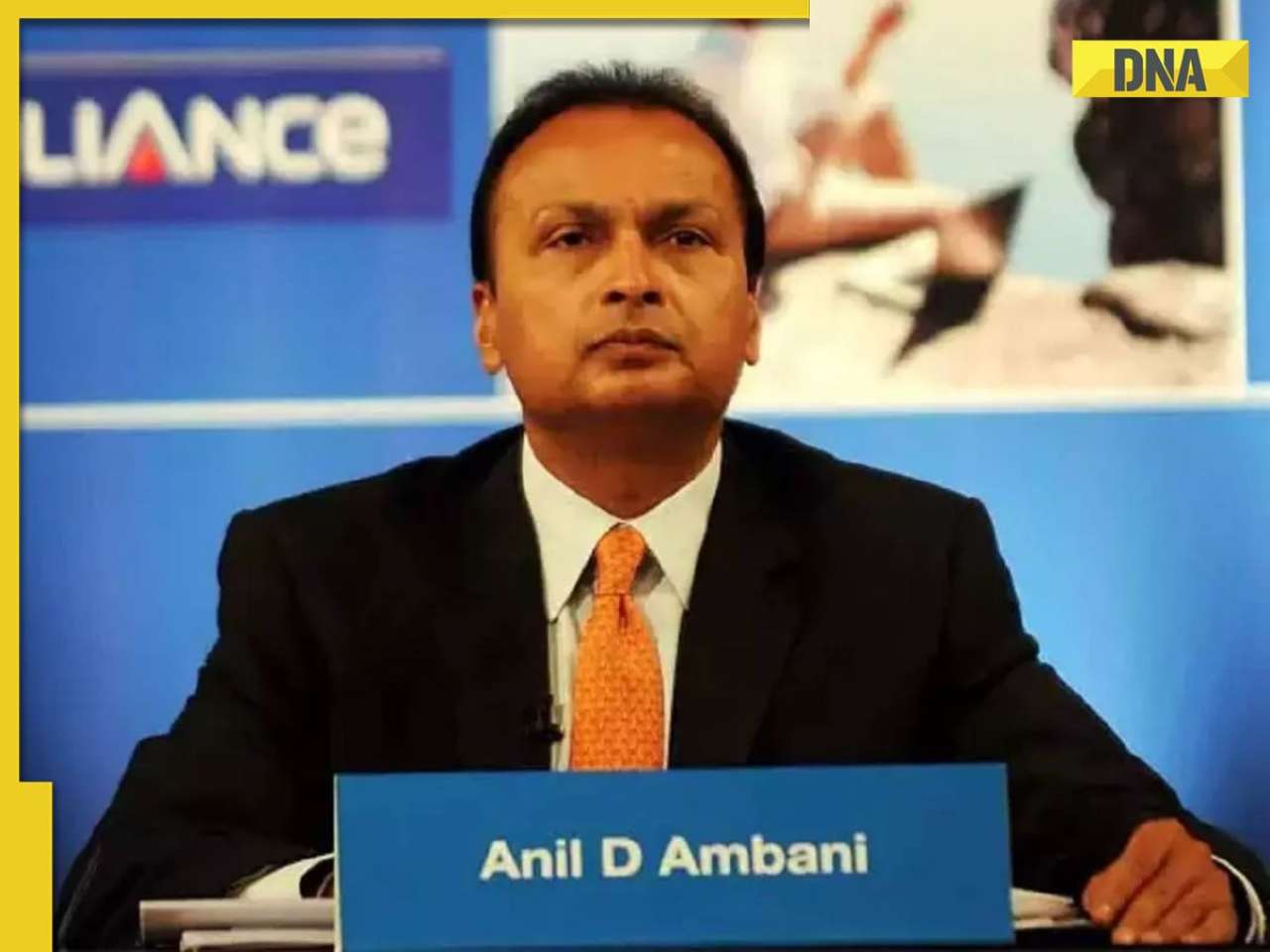
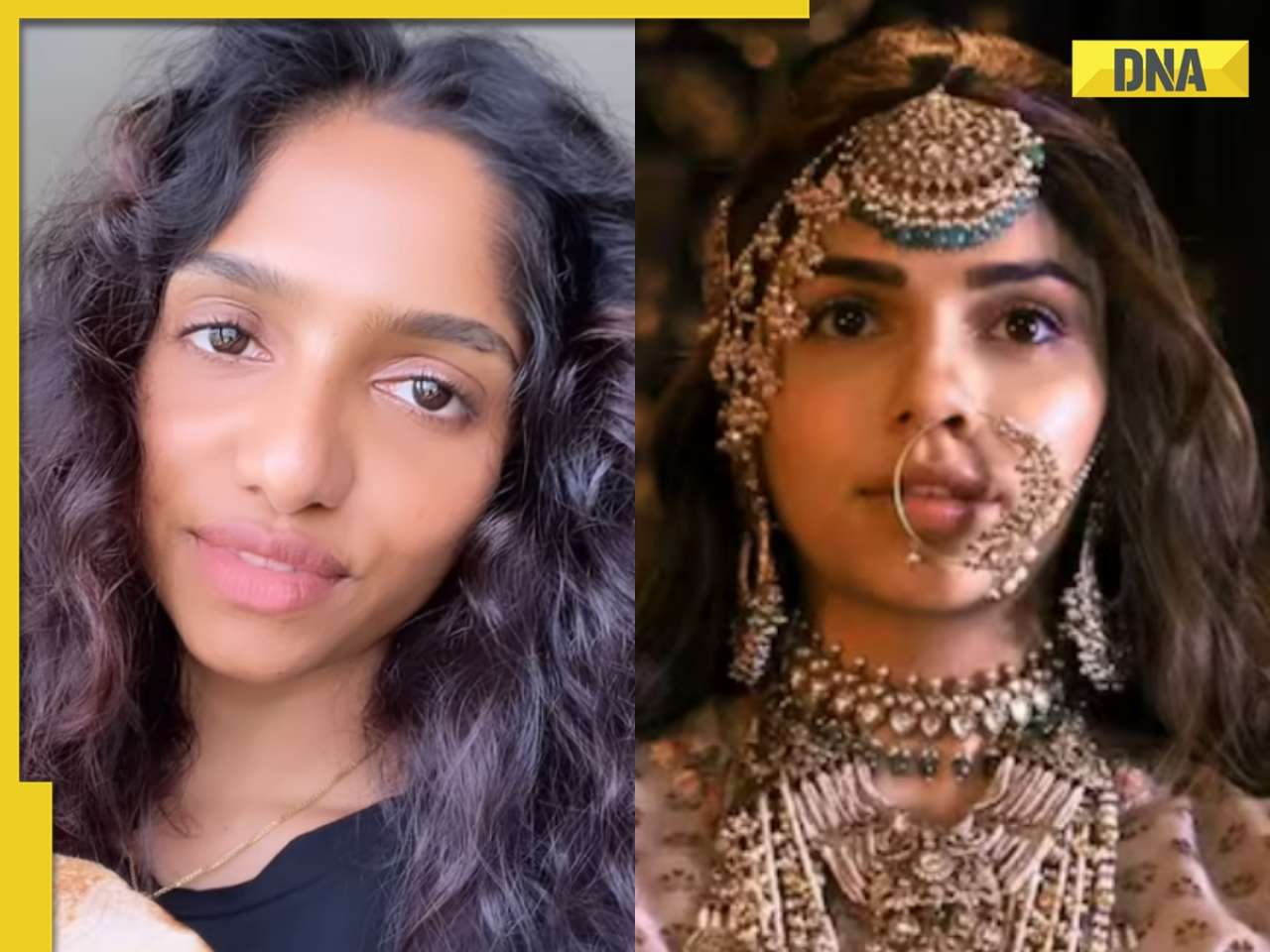

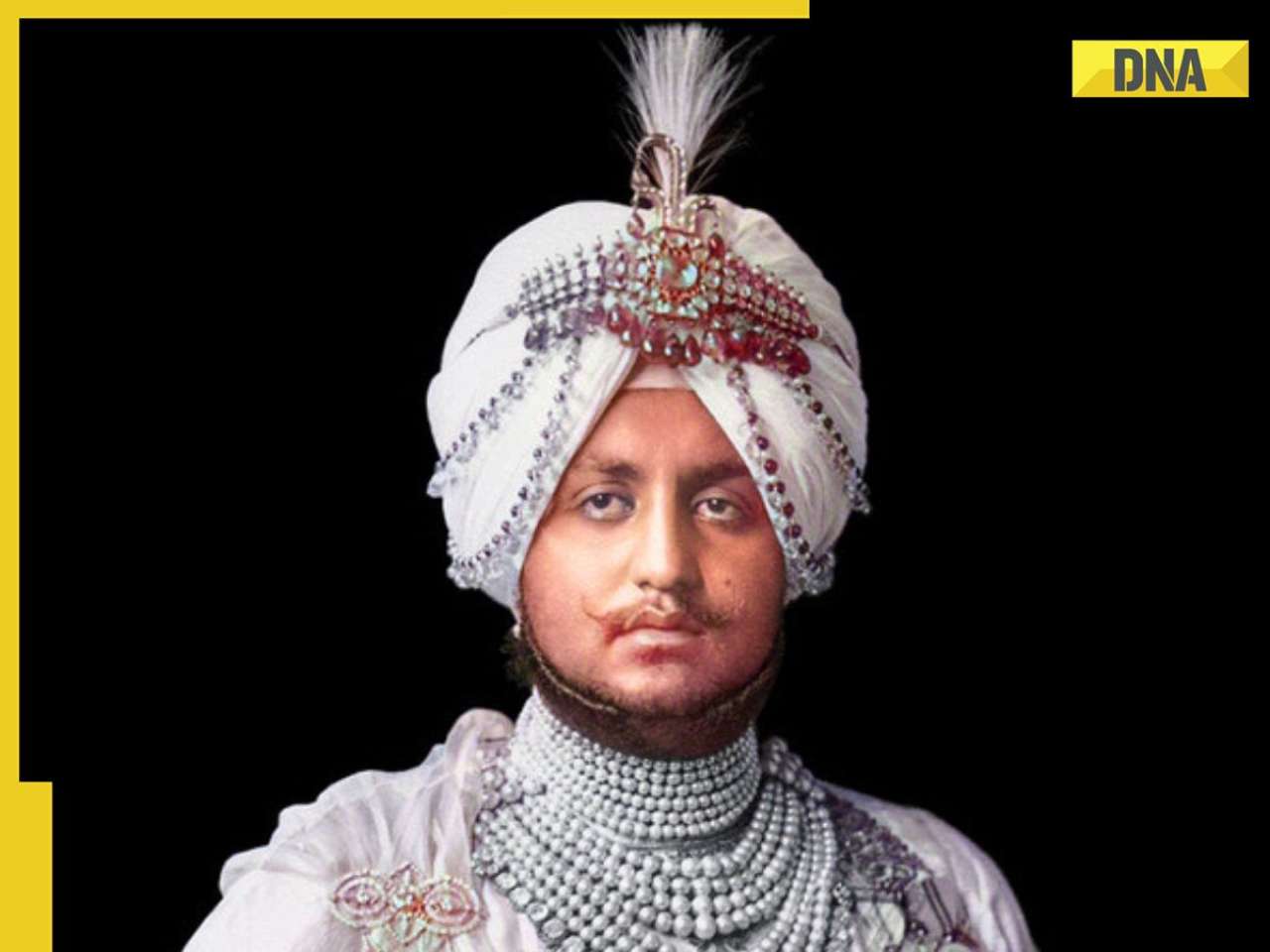

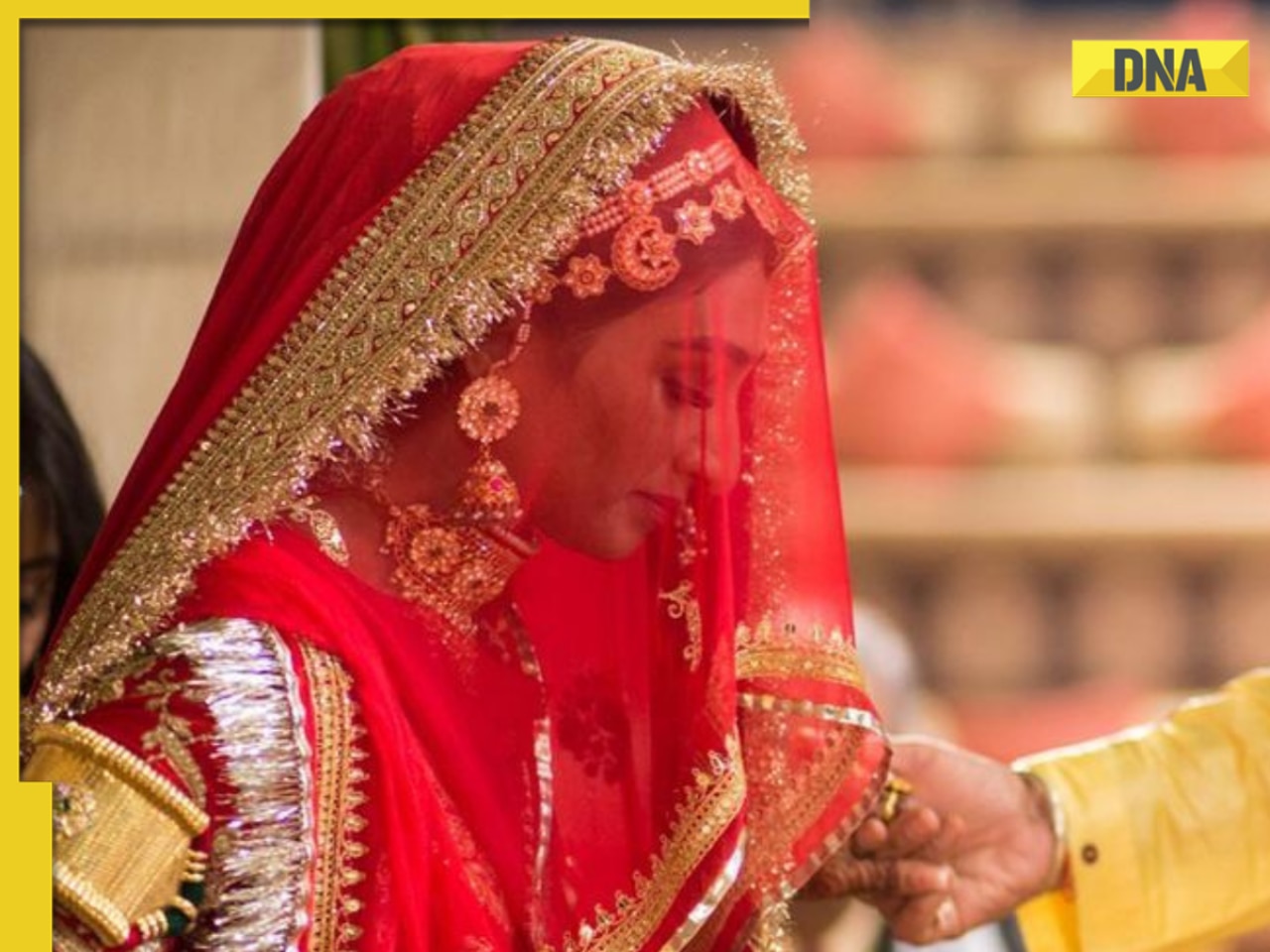
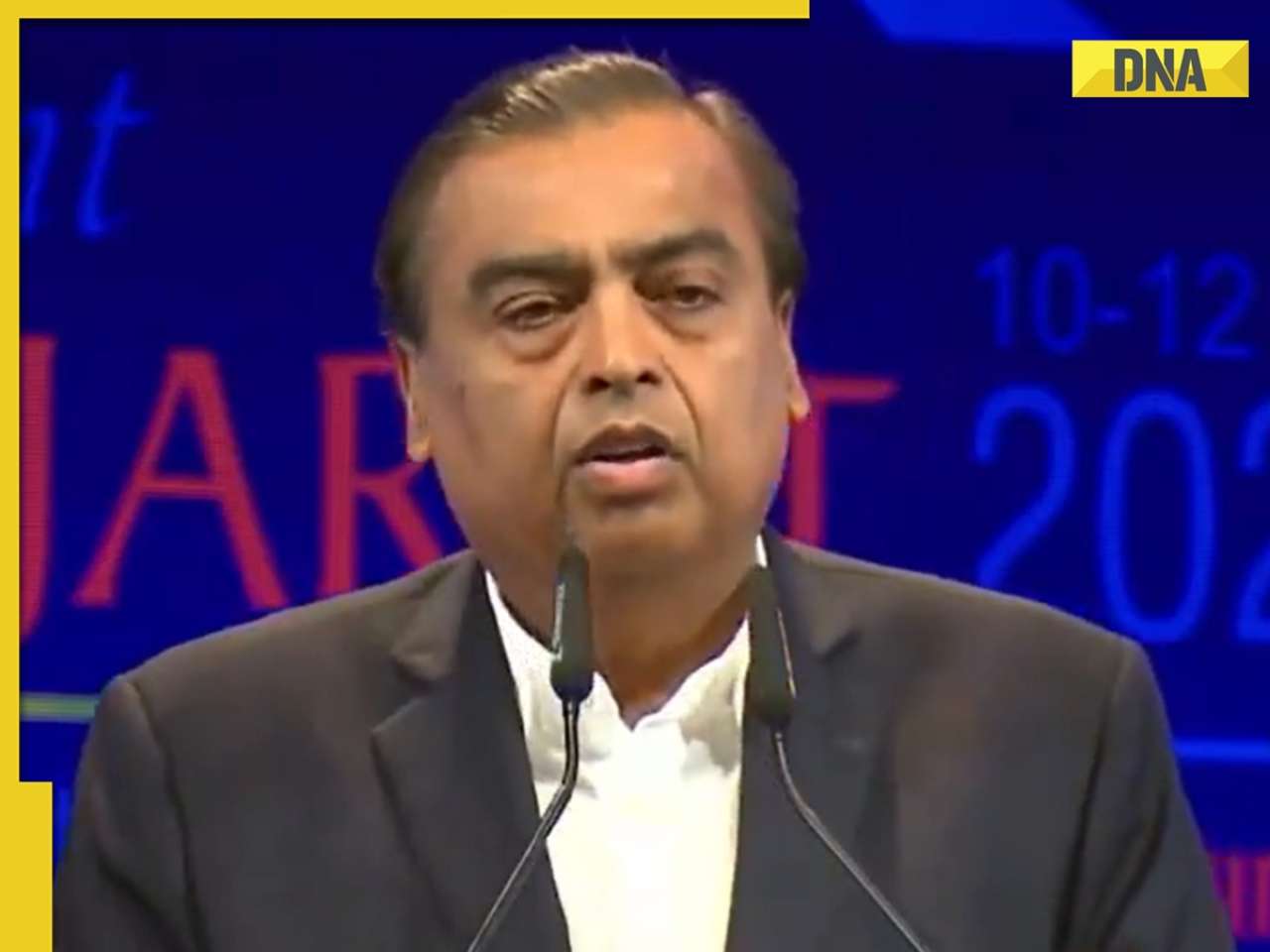

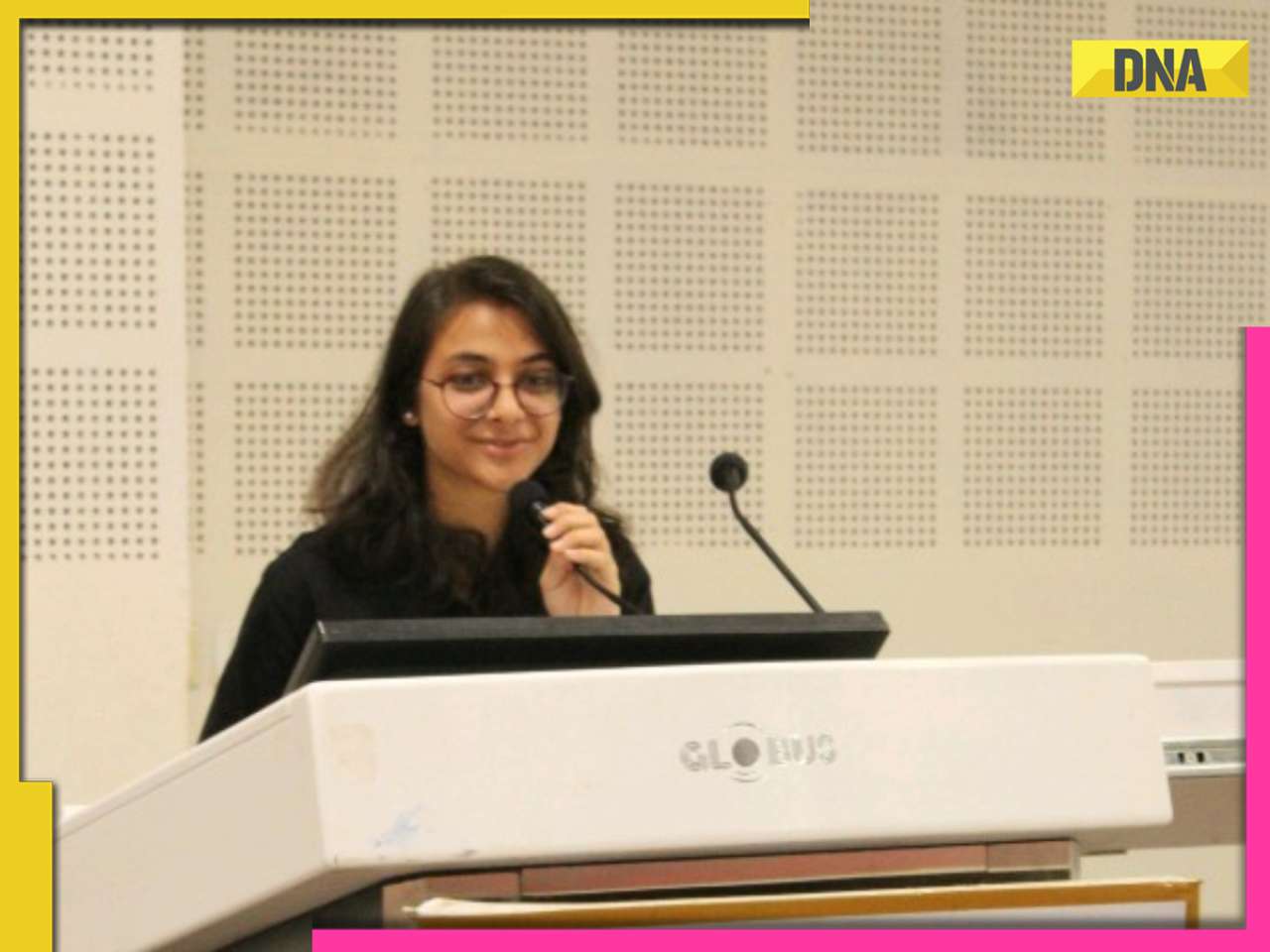








)
)
)
)
)
)